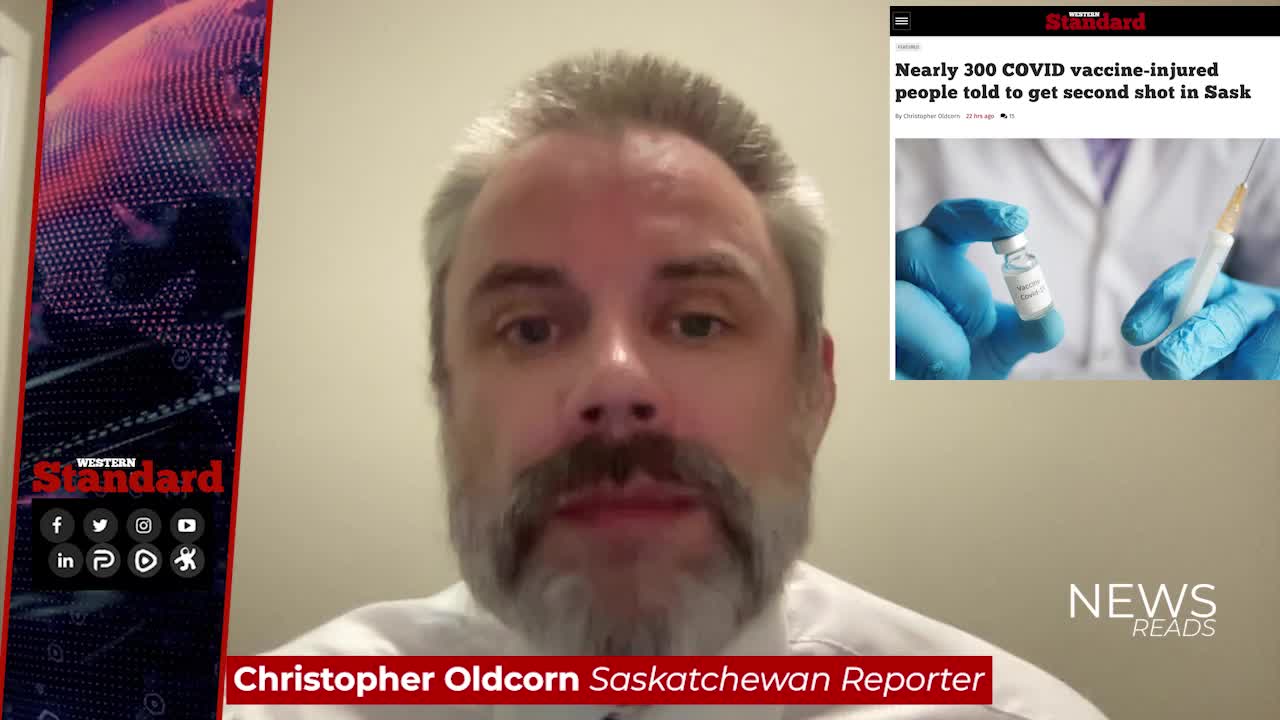
The province of Saskatchewan recommended a second COVID-19 vaccine shot for 285 people who had severe adverse reactions and complications after the first shot.
In Saskatchewan, 1,229 adverse reactions to a COVID-19 vaccine were documented up to April 21, 2022.
The information comes from a Freedom of Information (FOI) request submitted by a concerned Saskatchewan resident.
On March 2, they submitted the FOI request to the Ministry of Health (MOH) requesting:
“With respect to COVID-19 and other related terminology, including variants (known and unknown) — comprehensive details of all adverse reactions, including and not limited to suspected, and or verified adverse reactions, from any and all vaccines used to prevent COVID-19, and patients treated for COVID-19. Details should include, and not limited to: vaccine name; vaccine manufacturer; vaccine lot number; vaccination date; type of reaction; health region; patient’s age; patient’s sex; and number of doses received. January 1, 2020, through to January 24, 2022.”
The individual who submitted the FOI request wants to remain anonymous as they are concerned about a backlash against them.
On June 27, the government responded with 122 pages of records up to April 22, 2022, beyond the requested date of January 24, 2022.
After receiving the information, the individual shared the information with the Sask Alliance (SA), which is a non-profit organization “committed to ensuring the Saskatchewan Health Authority and Ministry of Health provide transparent and in-depth information related to COVID-19 decision making. On behalf of Saskatchewan citizens, we seek answers to reasonable questions concerning the law, public policy, informed consent, and bio-ethics for the health and safety of all Saskatchewan people.”
The MOH withheld some information as it “would disclose information about an identifiable individual,” which is normal practice in FOI requests of this nature.
The SA put together a committee to analyze the information, including a Canadian doctor with training in virology, public health, and data analysis.
All members of the SA committee wish to remain anonymous as they are afraid of professional repercussions against their careers.
The doctor wrote a 14-page report about the information in the FOI request.
A total of 285 people were recommended to have a second shot despite having severe life-threatening reactions such as anaphylaxis and myocarditis to the first jab..
The Medical Health Officer (MHO) recommended “no change” to their COVID-19 immunization schedule and have further doses administered including booster shots, but in a hospital emergency room for “monitoring.”
The doctor wrote that “in the opinion and judgement of the great majority of physicians reading these cases, any further contact with the COVID-19 vaccine would have been prohibited (contraindicated).”
“The principle of not administering any drug, including vaccines when the patient has already had a severe adverse event with the same drug vaccine appears to have been violated in each of these 285 cases,” wrote the doctor.
“In all these COVID-19 vaccine-related cases, the serious adverse event, including anaphylaxis have been confirmed by the MHO and health practitioner. However, in the normal practice of medicine, even a history of allergy/adverse event is sufficient to indicate to the physician or nurse that the same drug/vaccine should never be given to the patient again.”
Nadine Ness, Unified Grassroots (UG) founder, has “heard of some very horrific stories” including a UG member who got myocarditis and was told to get his second shot in the hospital, which is consistent with the FOI request data.
“One member in our group who was forced to get vaccinated for work got myocarditis after his first shot. When he asked for a medical exemption for the second shot to keep his job, they refused to give it to him and told him to get his second shot in the hospital,” said Ness.
“They had the sense enough to recognize the second shot gave him an increased risk so much so that he should be in hospital when it was administered, but not enough sense to give him an exemption. This is a perfect example of not following their Hippocratic oath to do no harm.”
Ness said stories like this man’s are why the public is distrustful of the healthcare system.
“This is exactly the type of behaviour and nonsense that is causing public distrust in our healthcare system. When statements and decisions like these are made, it makes the public believe there is a greater agenda being pushed here than doing what is best for each individual patient,” said Ness.
“This is one of the many stories that have been shared with me personally in our group. There are several more and each of them is just as appalling. It’s not too late to change, though, it’s not too late to make things right. However, continuing down this path is definitely not the answer.”


